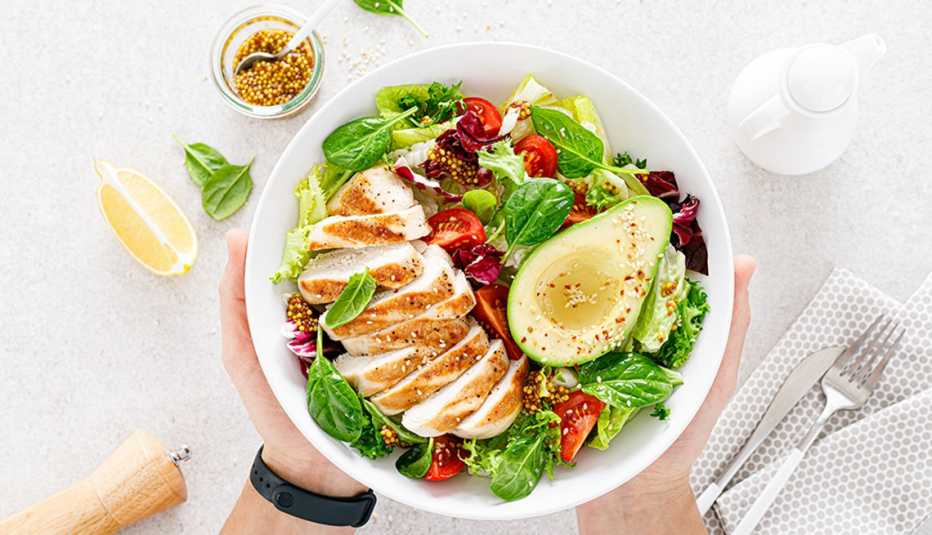Challenges


Are you eating enough protein?
A growing number of experts say the recommended dietary allowance (RDA) for protein is too low for older adults to preserve muscle strength. Yet, according to a report from the National Health and Nutrition Examination Survey, close to half of older adults do not meet existing protein recommendations, never mind the suggested higher levels.
That’s bad news since some studies suggest that sufficient protein may help protect mental skills.
The RDA for adults is 0.8 grams of protein per kilogram (2.2 pounds) of body weight per day. That’s about 54 grams of protein for a 150-pound woman and 65 grams for a 180-pound man. But researchers point out that these numbers were based on studies of healthy younger adults and may be insufficient for older people, especially those 65 and up. Older bodies have a harder time using protein, resulting in faster muscle loss with age.
So if a woman has an egg at breakfast, Greek yogurt at lunch, peanut butter for a snack and a 3-ounce portion of chicken breast or salmon at dinner, she’s achieved the current RDA of protein. But the latest research says that may not be enough.
The protein content of common foods
- Skinless chicken – 3 ounces (deck of cards): 25 grams
- Salmon or tuna – 3 ounces: 22 grams
- Cooked lentils – 1 cup: 18 grams
- Greek yogurt – 6 ounces (small carton): 18 grams
- Peanut butter – 2 tablespoons: 7 grams
- Egg – 1: 6 grams
Health organizations such as the National Resource Center on Nutrition & Aging have suggested that the RDA for healthy older adults should increase to 1 to 1.2 grams of protein per kilogram of body weight daily. That’s 68 to 82 grams for a 150-pound woman and 82 to 98 grams for a 180-pound man.
That would mean our 150-pound woman might need to, say, have a larger chicken breast or a 6-ounce portion of salmon at dinner and add an additional source of protein during the day — such as 2 or 3 ounces of cheese, a container of Greek yogurt for a snack, another egg at breakfast or a cup of lentils or beans at dinner.













More From Staying Sharp
Meal Prep a Week of Healthy Lunches for Less Than $20
An inexpensive one-week plan for packable lunchesHow to Roast Chicken
Roast chicken is one of the most gratifying dishes a home cook can makeStart a Daily Salad Habit
Creativity makes all the difference